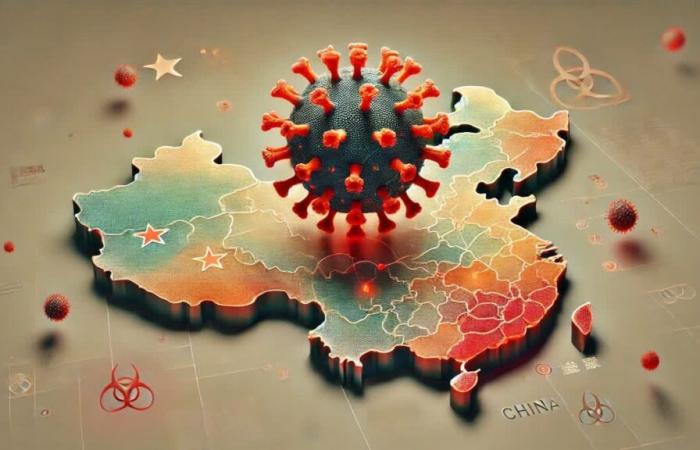Chinese authorities recently imposed emergency measures in response to the outbreak of a new virus, five years after the start of the COVID-19 pandemic. This virus, known as human respiratory virus (HMPV), has caused a sharp increase in infections, particularly in the northern provinces of the country, where it particularly affects children.
According to the U.S. Centers for Disease Control and Prevention (CDC), HMPV affects the upper and lower respiratory tract, and its symptoms are similar to those of the common cold, flu or even COVID-19. . Common signs of infection include fever, cough, nasal congestion, and difficulty breathing. In some patients, especially infants, the disease can cause serious complications, such as significant difficulty breathing.
The virus was first discovered in 2001 and belongs to the respiratory syncytial virus (RSV) family. It has mainly been observed in previous winter epidemics, but its re-emergence in China has triggered alarms, although experts point out that it does not present the same danger as COVID-19. This virus is mainly transmitted by respiratory droplets from sneezing and coughing, but also by direct contact with contaminated surfaces.
The incubation period for HMPV varies between 3 and 6 days, and symptoms can last between one and two weeks. However, in severe cases, the disease can affect the bronchi and cause respiratory complications requiring hospitalization. Children, especially those under 2 years old, are most vulnerable to this infection.
Doctors advise maintaining simple barrier gestures to limit the spread of the virus. It is recommended to wash your hands frequently, cover your mouth and nose when coughing or sneezing, and regularly clean frequently touched surfaces. People at risk, especially those with immune disorders, should avoid close contact with sick people and consult a doctor if they experience symptoms.
There is currently no vaccine or specific treatment for HMPV, but medical care is aimed at relieving symptoms. Although the situation remains under surveillance, the spread of the virus appears to be under control in the majority of affected regions.






